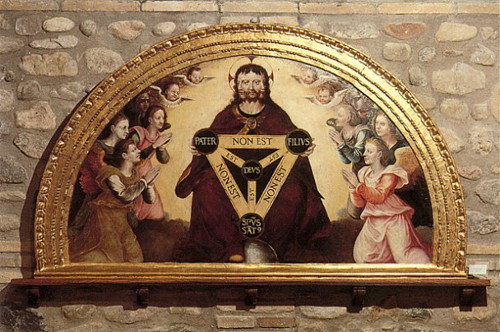University of Bristol Research project aims to find new ways to explain the success of Christianity in the fourth century AD by using cognitive linguistics and cognitive science of religion to interpret the representation of Christian doctrinal ideas in the work of Gregory of Nyssa.
Dr Isabella Sandwell, Senior Lecturer in Ancient History, has been awarded a British Academy Mid-Career Fellowship to carry out the project Embodied Doctrine: Finding a Universal Language for the Divine in the Fourth Century
This interdisciplinary project will use cognitive science to help us understand why some Christian doctrinal ideas were more successful than others, and also how doctrinal debates contributed to the success of Christianity in the fourth century and beyond.
It will show how conceptual metaphor theory and the cognitive science of religion can provide new ways of looking at Gregory of Nyssa’s use of analogies of father, son and begetting for the Trinity, and of showing that he used these analogies to make the creed, formulated at the ecumenical council of Nicaea in 325, more universally accessible and comprehensible to ordinary Christians. It will also revaluate doctrinal debates in late antique so that they are no longer dismissed as harmful to the church or irrelevant to ordinary Christians, but rather that they contributed to the success of the Christianity in this period and beyond.
The project will contribute to Dr Sandwell’s goals of integrating cognitive science with historical research on ancient Christianity, and of showing what can be gained by scholars in the arts and humanities from taking more account of human minds in their studies of other cultures and societies. It builds on a number of articles she has written using cognitive science to reinterpret aspects of late antique Christianity.
The research project will lead to the completion of a monograph entitled: Embodied Doctrine: Gregory of Nyssa’s Against Eunomius and the Success of Nicaean Christianity and an article on Gregory of Nyssa and John Chrysostom use of ideas of what counted as ‘common opinion’ and what was universally agreed in their attempts to explain Christian ideas to their audiences. Finally, it will also involve some public engagement activities with contemporary churches and interfaith groups.
Embodied Doctrine: Finding a Universal Language for the Divine in the Fourth Century
